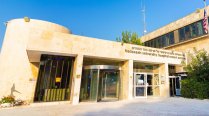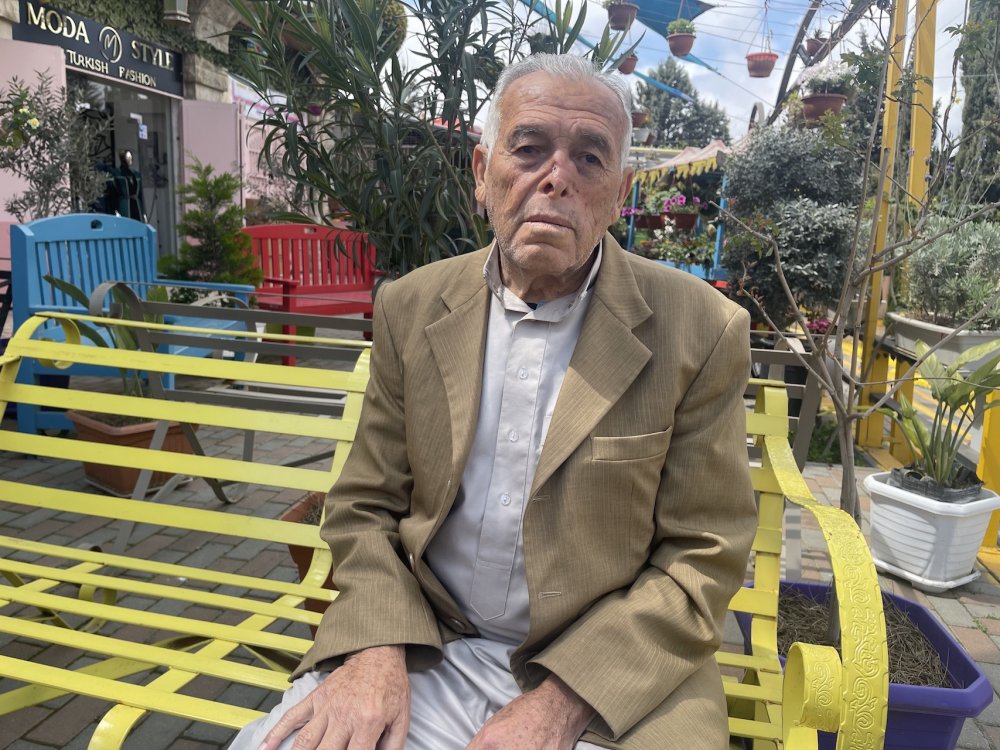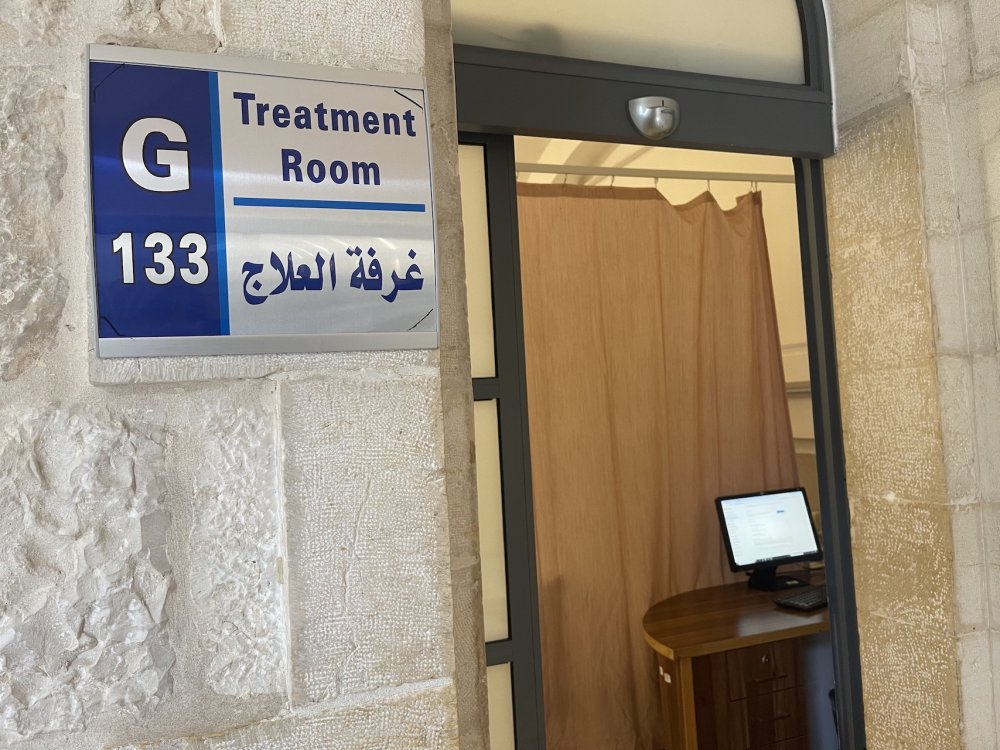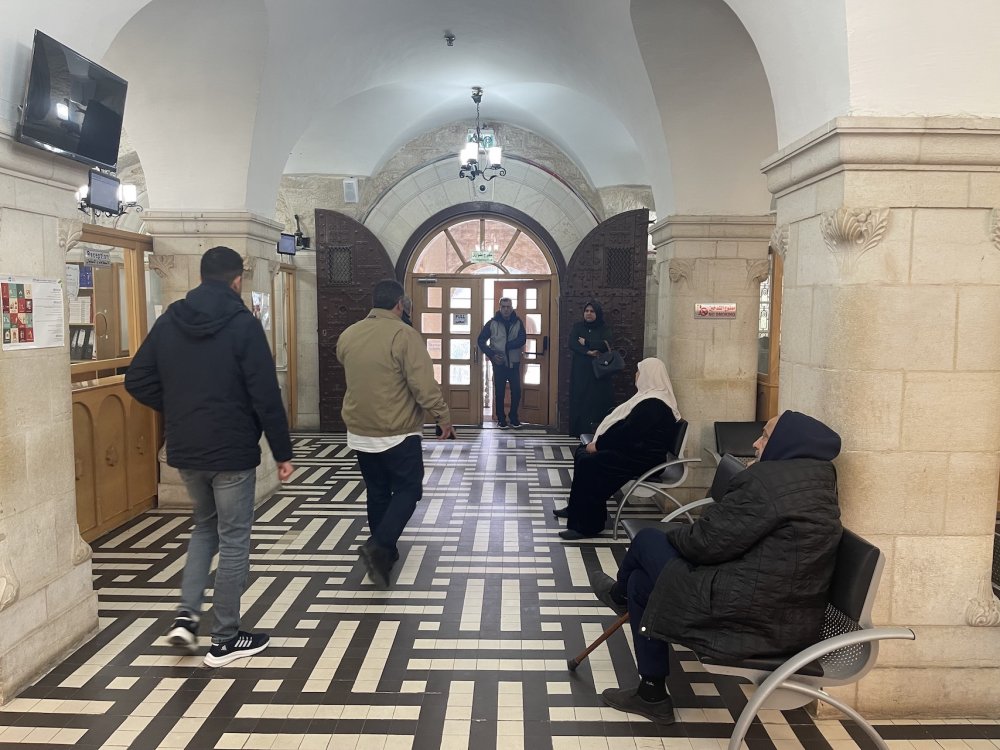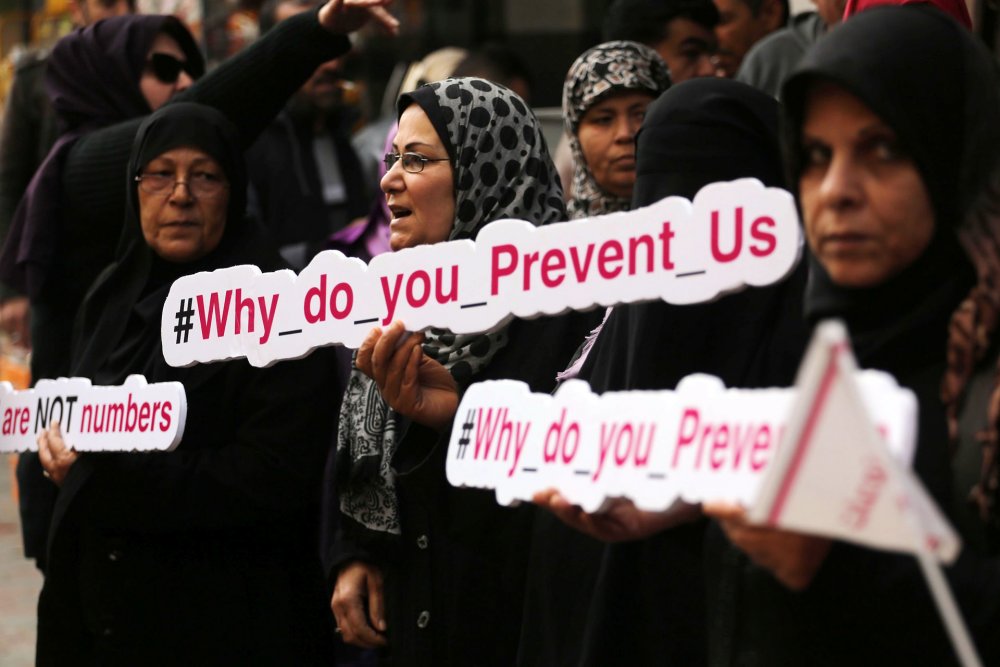With heavy steps, Abdul Rahman Jouda, 78, walks through the corridors of AlSawana hotel that provides accommodation for Palestinian patients from Gaza and their companions while they receive treatment for cancer at Augusta Victoria Hospital in East Jerusalem.
In August 2023, Abdul Rahman was diagnosed with skin cancer in the nasal area. After he underwent two surgeries at Nasser Medical Complex in Khan Yunis in the Gaza Strip, his doctors decided to refer him on September 18 to Augusta Victoria Hospital for radiation therapy, which is unavailable in the Gaza Strip.1
He was extremely fortunate to receive a rare entry permit from the Israeli military authorities to leave Gaza and travel to Jerusalem for this care.
On October 7, Hamas launched Operation al-Aqsa Flood and Israel declared war on the Gaza Strip, radically changing the situation on the ground.
Over two months, Abdul Rahman received 35 sessions of radiation therapy and continues to be treated for his cancer in Jerusalem. The Israeli Civil Administration, however, now plans to deport 49 Palestinian patients and their companions back to the Gaza Strip, claiming that they are in the recovery stage and thus do not need to receive additional treatment. Eleven of these patients, including Abdul Rahman, are still being monitored at the hospital and staying in nearby hotels.
The patients were notified on March 21 that they should be ready to leave at 3:00 a.m. the next morning, to arrive at Erez checkpoint to Gaza by 6:30 a.m.2
But a legal appeal to the Supreme Court achieved a temporary delay in the order.
Jerusalem Story sat down with Abdul Rahman, who hails from the city of Rafah in the southern Gaza Strip, where over 1.3 million Palestinians are now residing and sheltering from the war. He worries that if he is forced to return to Gaza, the overcrowding and polluted environment due to Israel’s ongoing war on Gaza would directly impact his health.
“I’m facing a dilemma: to stay in Jerusalem and endure the remaining pains of my treatment journey, away from my children and community, or to return to Rafah and face the danger of death because of the war or the deterioration of my health in the absence of medical facilities in the Gaza Strip,” Abdul Rahman said.3


